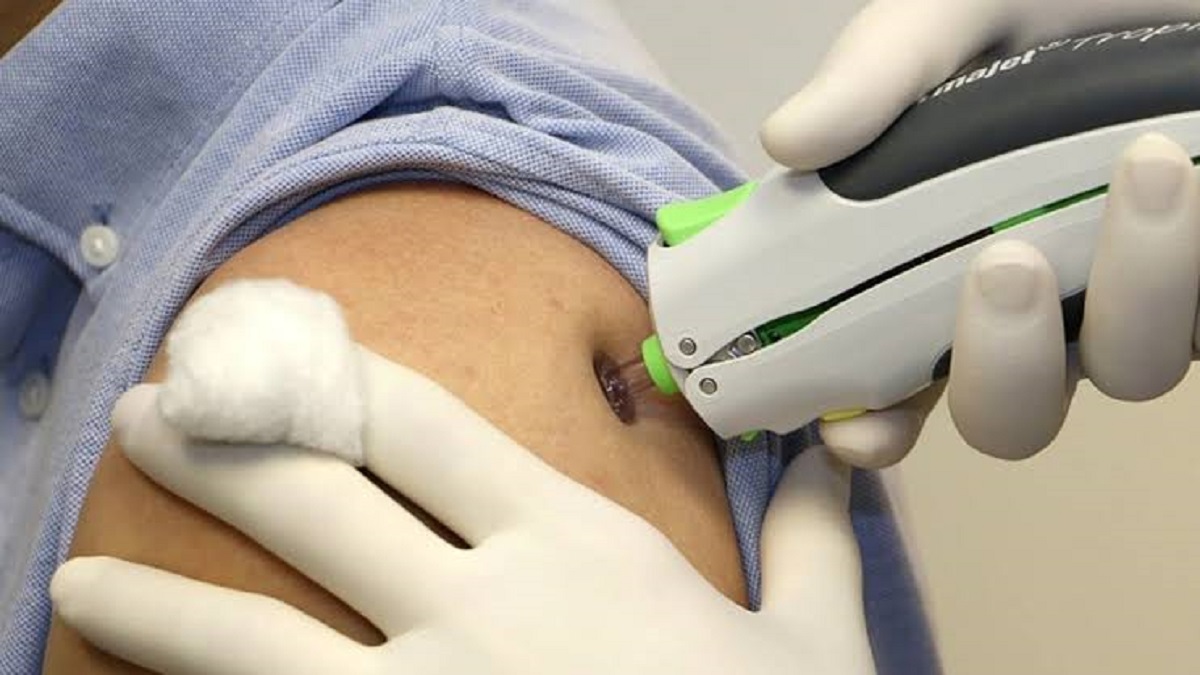The Federal Government has announced that the adoption of a needle-free injection system is expected to save Nigeria $49.51 million over the next five years. This innovation aims to address gaps in routine immunisation and enhance the country’s healthcare delivery system.
Dr. Rufai Garba, Director of Disease Control and Immunisation at the National Primary Health Care Development Agency (NPHCDA), revealed this during a dissemination meeting of the Tropis®️ project on Friday in Abuja. The meeting highlighted the results of a multi-year study funded by USAID, launched in September 2022, to assess the Tropis®️ Intradermal (ID) Needle-Free Injection System (NFIS).
The Tropis®️ system is specifically designed for administering fractional inactivated poliovirus vaccine (fIPV) in Nigeria. The study, conducted across Kano and Oyo states from October 2022 to July 2024, evaluated the effectiveness, cost savings, and scalability of the needle-free system compared to the traditional intramuscular (IM) injection method.
According to Dr. Garba, the Tropis®️ system demonstrated cost savings ranging from $0.07 to $1.00 per dose, translating to up to 47% savings in total immunisation costs. These savings could significantly improve the affordability and accessibility of vaccinations across the country.
Improved Coverage and Acceptance
Paul LaBarre, Vice President of Global Business Development at PharmaJet, shared the positive results of the Tropis®️ project, noting that the needle-free system improved immunisation coverage and reduced programme costs. “The Tropis system is scalable for routine immunisation and was well-received by both caregivers and health workers,” he said. In fact, 95% of caregivers and health workers preferred the needle-free system over traditional needle-based methods.
LaBarre also highlighted the system’s reliability, with no reported malfunctions over the six-month study period, demonstrating its effectiveness and dependability for large-scale immunisation efforts.
Support from the Ministry of Health
Professor Muhammad Ali Pate, Coordinating Minister of Health and Social Welfare, expressed optimism about the global potential of the needle-free technology. Represented by Dr. Emmanuel Odu, his Special Adviser, Pate praised the system for its ability to reduce pain, lower the risk of infections, and enhance compliance among patients. He also noted that needle-free injections help minimise medical waste, a significant environmental concern.
“The potential of needle-free systems to increase immunisation rates, especially in populations hesitant about traditional injections, cannot be understated,” Pate added.
A Step Forward in Vaccination Innovation
Dr. Babatunde Olatunji, Executive Secretary of Oyo State Primary Health Care (PHC), described the Tropis®️ needle-free vaccination protocol as a remarkable innovation in Nigeria’s health sector. Reflecting on past vaccination methods, Olatunji noted that the new system is far more advanced compared to the invasive methods used in previous decades.
Olatunji also emphasized that the Tropis®️ system is easy to use, even for unskilled healthcare workers, and has been positively received in the Local Government Areas (LGAs) where it has been piloted.
Global Implications and Collaboration
Ms. Sinu Kurian, Director of the Health Population and Nutrition Office at USAID/Nigeria, described the Tropis®️ project as a major breakthrough in achieving equitable polio immunisation coverage. She noted that the research addressed cost and supply challenges while providing critical evidence to support the potential national adoption of the Tropis®️ needle-free device.
Kurian commended the collaborative efforts of partners, including JHPIEGO, PATH, and the Sydani Group, and expressed hope that the study’s findings would influence Nigeria’s broader immunisation strategies while contributing to global polio eradication efforts.
According to the study, an overwhelming 97.6% of vaccinators and 99.6% of caregivers preferred the needle-free system over traditional needle-and-syringe methods, underscoring its acceptance and potential for widespread use.
With such promising results, the Tropis®️ system represents a transformative step in Nigeria’s journey toward more efficient, accessible, and sustainable immunisation practices.




